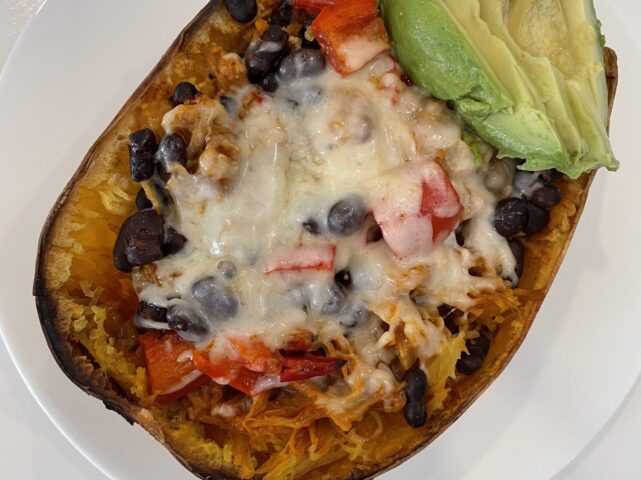Understanding Intuitive Eating: Are You Ready?

By Rebecca Jaspan, MPH, RD, CDN, CDCES
Intuitive Eating is a nutritional self-care framework made up of 10 principles which integrate instinct, emotion, and rational thought around feeding oneself. The goal of Intuitive Eating is to help you listen to your body to allow it to guide your timing and portions, rather than relying on external cues from the environment, emotions, or rules. Intuitive Eating helps you gain a deeper awareness of internal hunger and satiety cues and pay attention to both the emotional and physical sensations that are experiences while eating1. IE can be used when working on recovery from an eating disorder and or learning to eat in a non diet way.
The 10 principles of Intuitive Eating were created by two dietitians, Evelyn Tribole and Elyse Resch. They areas follows:
-
Reject the Diet Mentality
- The diet mentality is the idea that there is a diet out that works and Intuitive Eating is really the anti-diet.
-
Make Peace with Food
- Get rid of ideas about what you should or should not eat.
-
Honor Your Hunger
- Hunger is not the enemy, respond to early signs of hunger by feeding your body
-
Challenge the Food Police
- Food is not good or bad and you are not good or bad for what you eat or don’t eat. Food has no moral value and challenge the thoughts that tell you otherwise.
-
Respect Your Fullness
- Your body tells you when its full, learn to listen to signs of comfortable fullness
-
Discover the Satisfaction Factor
- Find foods that satisfy you and make your eating experience enjoyable to increase satisfaction.
-
Honor Your Feelings Without Using Food
- Find ways that are unrelated to food to cope with feelings.
-
Respect Your Body
- Rather than criticizing your body for how it looks and what you perceive is wrong with it, learn to accept your body and show gratitude for what it does for you.
-
Exercise- Feel the Difference
- Find ways to move your body that you enjoy and shift the focus from losing weight to feeling strong and energized.
-
Honor Your Health with Gentle Nutrition
- Food you eat should taste good and it should also make you feel good. Recognize that it is the overall patterns of your food intake that shape your health.
In order to be an intuitive eater, you must be able to accurately recognize hunger and fullness cues. It is also helpful to develop food preferences and coping skills for emotions. During treatment for an eating disorder, many of these principles might feel really hard and confusing. Your body isn’t quite ready yet to put these principles into practice because your brain may not be able to physically access hunger and fullness cues. Simply, your brain and body aren’t communicating with each other so these signals are going to be unclear.
In an eating disorder, hormones that regulate hunger and fullness such as ghrelin, leptin, and insulin are altered. Additionally, your brain structure may be altered due to food restriction, binge eating, or purging2. These changes interfere with taste perception, food reward circuits, the drive to eat, and food intake regulation3. The good news is that research shows that changes are mostly reversible with weight restoration if necessary and long periods of adequate intake. The first step is to work with your dietitian to nourish your brain in order to make more progress in listening to and respecting your body and connecting to your hunger and fullness.
It takes time to develop these skills throughout eating disorder treatment and your dietitian may slowly allow you to start practicing certain principles of Intuitive Eating as you are ready for them. You might start with using your hunger and fullness for a snack and determining its accuracy. Once you are able to nourish yourself adequately, eat mindfully, and cope with emotions without using food, you may be ready to practice intuitive eating more often. Know that this process is hard work, so be gentle with yourself as you rediscover the connection between brain and body and move closer to becoming an intuitive eater.
References
- https://www.intuitiveeating.org/definition-of-intuitive-eating/
- Frank GKW, Shott ME, DeGuzman MC. The Neurobiology of Eating Disorders. Child Adolesc Psychiatr Clin N Am. 2019;28(4):629-640. doi:10.1016/j.chc.2019.05.007
- Yeung AY, Tadi P. Physiology, Obesity Neurohormonal Appetite And Satiety Control. In: StatPearls. StatPearls Publishing; 2021. Accessed June 18, 2021. http://www.ncbi.nlm.nih.gov/books/NBK555906/







